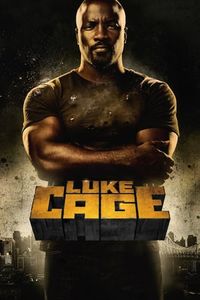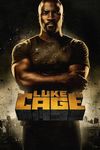Luke Cage is a show with personality, rhythm, charisma… and some contradictions. It’s not just another superhero story, and that’s part of its charm. From the first episode, it makes clear it wants to talk about power, identity, community. It does so from Harlem, proudly African-American, with a soundtrack that pulses with the story, and a protagonist who commands attention without raising his voice.
Mike Colter fully inhabits the role of Cage, with an imposing presence. He doesn’t need to do much to feel powerful. But that’s also one of the series’ oddities: when you’ve got a character who can break down walls with one hand, it’s hard to believe some villains last so long or that some fights feel too balanced. Sometimes the script seems to stretch reality just to keep up tension, even if it means ignoring what Cage can actually do.
Still, Luke Cage works because of much more than punches. The best parts are the conversations, the personal conflicts, the mix of noir, blaxploitation and street-level drama that makes it feel like no other Marvel-Netflix entry. There are episodes where you forget it’s about superheroes—and that’s not a flaw. In fact, that’s when it shines.
It also improves over time. Season two fixes early mistakes, digs deeper into relationships and dares to go in less predictable directions. It’s not perfect—there are pacing issues and underused characters—but it knows what it wants to be, and tells its story with style.
Another highlight is Harlem itself, almost a character on its own. The atmosphere, the culture, the music… it all builds a world with real identity. Probably the most coherent world-building in the Marvel-Netflix universe.
Not all villains live up to the challenge, it’s true. Sometimes you wonder why someone with Cage’s strength has to struggle so much. But if you go along with the ride, it all works.
Luke Cage may not be Marvel’s most flawless series, but it has something that sticks. It’s entertaining, yes—but it also wants to matter. And in many ways, it does.












Comments